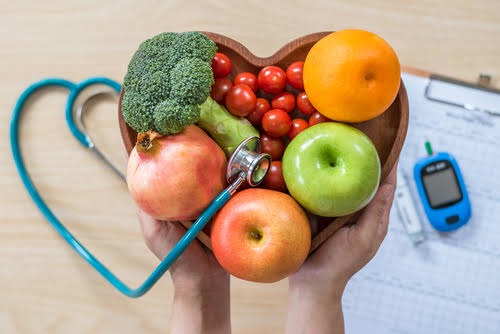
Diabetes is a chronic condition that affects millions of people worldwide. It requires careful management of blood sugar levels to prevent complications and maintain overall health. When it comes to diet, one common question arises: Can individuals with diabetes include fruits in their meal plans? The good news is that most fruits can be consumed as part of a well-balanced diet for individuals with diabetes. According to Medicalnewstoday. This article explores the relationship between diabetes and fruit consumption, highlighting the factors to consider and offering guidance on incorporating fruits into a diabetes-friendly diet.
Understanding Diabetes and Fruit Consumption
Fruits are an essential component of a healthy diet for people with or without diabetes. They provide vital nutrients, including vitamins, minerals, and fiber, which promote overall well-being. However, since fruits contain natural sugars, primarily in the form of fructose, individuals with diabetes need to be mindful of their fruit choices and portion sizes.
Effects of Fruit on Blood Sugar
While fruits do contain sugars, they also have a relatively low glycemic index (GI). The glycemic index measures how quickly carbohydrates in food are converted into glucose and absorbed into the bloodstream. Low-GI fruits, such as berries, apples, and citrus fruits, have a milder impact on blood sugar levels compared to high-GI foods like white bread or sugary desserts.
Fiber Content in Fruits
One of the key reasons fruits are beneficial for individuals with diabetes is their high fiber content. Fiber aids in slowing down the digestion and absorption of carbohydrates, leading to a more gradual and controlled rise in blood sugar levels. Additionally, fiber promotes a feeling of fullness, which can assist with weight management—a crucial aspect of diabetes management.
Smart Fruit Choices for Diabetes
While most fruits can be included in a diabetes-friendly diet, it is essential to make wise choices to manage blood sugar effectively. Here are a few tips to consider:
Portion Control: Pay attention to portion sizes. Instead of consuming large amounts of fruit at once, spread your intake throughout the day to prevent sudden spikes in blood sugar levels.
Low-GI Fruits: Opt for fruits with a lower glycemic index, such as berries, cherries, apples, pears, citrus fruits, and stone fruits like peaches and plums. These choices tend to have a milder impact on blood sugar levels.
Whole Fruits vs. Juices: Whole fruits are generally preferable to fruit juices. Whole fruits contain more fiber, which slows down the absorption of sugars. Juices, on the other hand, can cause a quicker spike in blood sugar due to their concentrated sugar content and lack of fiber.
Pair with Protein or Healthy Fats: To further minimize the impact of fruit on blood sugar, consider combining them with a source of protein or healthy fats. For example, have some almonds with an apple or enjoy a slice of avocado with berries. This can help slow down digestion and maintain stable blood sugar levels.
Individual Factors: Each person’s response to fruits may vary, so it’s essential to monitor your blood sugar levels and work with a healthcare professional or registered dietitian to determine the most suitable fruit choices and portion sizes for your specific needs.
Incorporating fruits into a diabetes management plan is not only possible but also highly encouraged. Fruits offer essential nutrients, fiber, and antioxidants that contribute to overall health and well-being. By choosing fruits with a lower glycemic index, practicing portion control, and considering individual factors, individuals with diabetes can safely enjoy a variety of fruits as part of a balanced diet. It is crucial to work with healthcare professionals to develop a personalized meal plan that suits your specific needs and to monitor blood sugar levels regularly to ensure optimal diabetes management.
Thanks for reading.








Leave a Reply